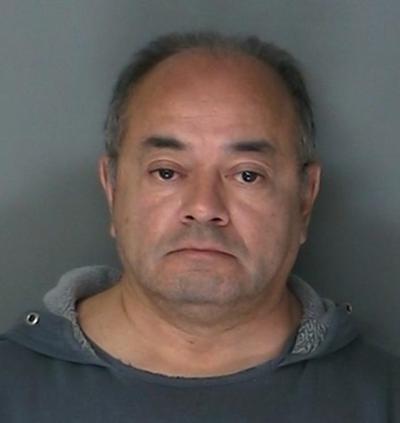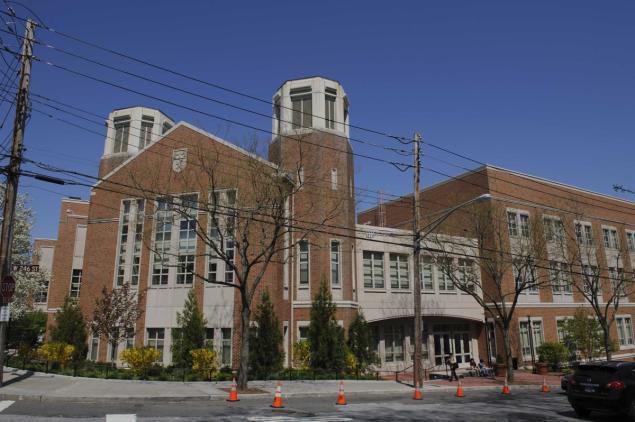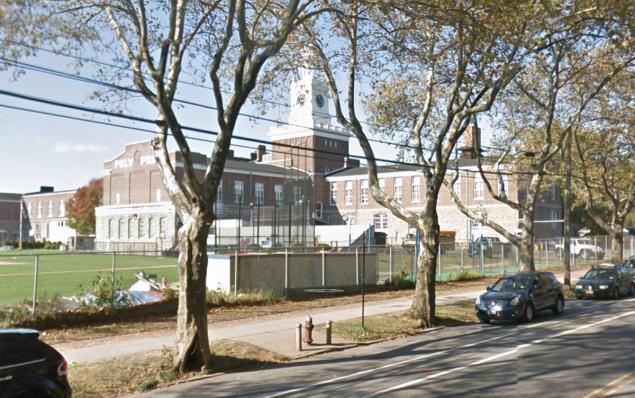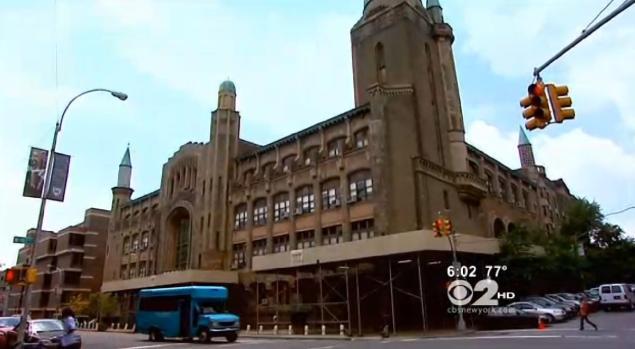|
Monsters enabled by New York’s sex crime statutes of limitations
New York Daily News
The spotlight at the moment is on a Long Island foster care house of horrors where an accused predator took in dozens of boys over the course of two decades and allegedly subjected many of them to sexual abuse. The spotlight has shone elsewhere before — many elsewheres. More than 20 teachers at the prestigious Horace Mann School in the Bronx sexually abused more than 60 students. The football coach at Poly Prep Country Day School in Brooklyn abused at least a dozen boys, according to a suit that the school has settled. Thirty-four former students at Yeshiva University High School for Boys have reported being abused by the school’s then-principal. In 2015, the New York Special Commissioner of Investigation fielded 570 complaints about sexual misconduct by teachers and staff of the city’s schools, opened 217 investigations and substantiated sexual misconduct findings in 20% of his cases. In January, the Archdiocese of New York suspended a priest assigned to St. Barnabas Church in the Bronx after a man in his 40s said the priest had abused him as a boy. In 2015, the archdiocese dismissed another priest who had admitted to sexually abusing 10 minors. The Brooklyn district attorney’s office has struggled for years to prosecute members of the borough’s ultra-Orthodox Jewish community for assaults on children. Sexual abuse of minors is epidemic in New York as it is in so many other elsewheres. The crime steals innocence and leaves life-destroying scars on the most vulnerable victims. Yet it may well be the least prosecuted of all sex crimes. Its perpetrators may well be the most likely of all sex criminals to get away with their offenses. And New York is America’s most predator-friendly state. New York’s penal law reads as tough as nails on sex crimes. From groping on the subway to violent rape, the statute minutely describes every possible crime and imposes stiff sentences on convicted offenders. But another lawbook mandates that prosecutors must bring criminal charges within unrealistic, if not impossibly short, periods of time. Victims of childhood sexual assaults must similarly rush into court in order to file lawsuits. Common across the country, statutes of limitations on prosecutions and private suits are designed to prevent people from having to answer legal accusations years, if not decades, after the events in question — when witnesses and evidence may be long gone. New York does make exceptions for crimes that are deemed especially heinous. Famously, for example, there is no statute of limitations on murder. In the area of sex crimes, some offenses have no limit (rape, for one), while others do (sex abuse, for another). Those distinctions make the state’s criminal procedure law a how-to-get-away-with-it handbook for sex predators. Those who prey on children are often people, such as teachers and coaches, who have power over the kids and are trusted. They chose both their positions and their victims with diabolical calculation. Still more, predators rely on shame and fear to keep victims silent. Decades may pass before a victim gathers the strength to reveal hidden secrets that may have led to social problems such as alcoholism, drug abuse and difficulty maintaining relationships. In 2006, New York recognized that requiring an adult sex crime victim to come forward within five years made sense but that requiring a child or teenage victim to contact a district attorney within five years was ludicrous. The Legislature amended the law to allow prosecutions and civil suits covering some crimes for up to five years after a victim turns 18. But, as the Long Island house of horrors case shows, many young victims get far deeper into adulthood than the age of 23 before the finding the bearings to invoke the legal system. Meanwhile, predators need only to read the law to minimize the threat of punishment. For example, because it has no statute of limitations, they might avoid committing a crime called “course of sexual conduct against a child in the first degree,” which entails, among other grotesqueries, anal, oral or vaginal intercourse with a child less than 11. But they would be safer committing “course of sexual conduct against a child in the second degree,” which can entail manual genital manipulation, because the victim would have to file charges by the age of 23. Similarly, if they penetrate a child with an object and cause injury, there is no statute of limitation, but if they penetrate more carefully without causing injury, the statute of limitations applies. New York’s sex crime statutes of limitations are worse than inconsistent and illogical. They are the enabling legislation of monsters. The spotlight at the moment is on a Long Island foster care house of horrors where an accused predator took in dozens of boys over the course of two decades and allegedly subjected many of them to sexual abuse. The spotlight has shone elsewhere before — many elsewheres. More than 20 teachers at the prestigious Horace Mann School in the Bronx sexually abused more than 60 students. The football coach at Poly Prep Country Day School in Brooklyn abused at least a dozen boys, according to a suit that the school has settled. Thirty-four former students at Yeshiva University High School for Boys have reported being abused by the school’s then-principal. In 2015, the New York Special Commissioner of Investigation fielded 570 complaints about sexual misconduct by teachers and staff of the city’s schools, opened 217 investigations and substantiated sexual misconduct findings in 20% of his cases. In January, the Archdiocese of New York suspended a priest assigned to St. Barnabas Church in the Bronx after a man in his 40s said the priest had abused him as a boy. In 2015, the archdiocese dismissed another priest who had admitted to sexually abusing 10 minors. The Brooklyn district attorney’s office has struggled for years to prosecute members of the borough’s ultra-Orthodox Jewish community for assaults on children. Sexual abuse of minors is epidemic in New York as it is in so many other elsewheres. The crime steals innocence and leaves life-destroying scars on the most vulnerable victims. Yet it may well be the least prosecuted of all sex crimes. Its perpetrators may well be the most likely of all sex criminals to get away with their offenses. And New York is America’s most predator-friendly state. New York’s penal law reads as tough as nails on sex crimes. From groping on the subway to violent rape, the statute minutely describes every possible crime and imposes stiff sentences on convicted offenders. But another lawbook mandates that prosecutors must bring criminal charges within unrealistic, if not impossibly short, periods of time. Victims of childhood sexual assaults must similarly rush into court in order to file lawsuits. Common across the country, statutes of limitations on prosecutions and private suits are designed to prevent people from having to answer legal accusations years, if not decades, after the events in question — when witnesses and evidence may be long gone. New York does make exceptions for crimes that are deemed especially heinous. Famously, for example, there is no statute of limitations on murder. In the area of sex crimes, some offenses have no limit (rape, for one), while others do have statutes of limitations (sex abuse, for another). Those distinctions make the state’s criminal procedure law a how-to-get-away-with-it handbook for sex predators. Those who prey on children are often people, such as teachers and coaches, who have power over the kids and are trusted. They chose both their positions and their victims with diabolical calculation. Still more, predators rely on shame and fear to keep victims silent. Decades may pass before a victim gathers the strength to reveal hidden secrets that may have led to social problems such as alcoholism, drug abuse and difficulty maintaining relationships. In 2006, New York recognized that requiring an adult sex crime victim to come forward within five years made sense but that requiring a child or teenage victim to contact a district attorney within five years was ludicrous. The Legislature amended the law to allow prosecutions and civil suits covering some crimes for up to five years after a victim turns 18. But, as the Long Island house of horrors case shows, many young victims get far deeper into adulthood than the age of 23 before the finding the bearings to invoke the legal system. Meanwhile, predators need only to read the law to minimize the threat of punishment. For example, because it has no statute of limitations, they might avoid committing a crime called “course of sexual conduct against a child in the first degree,” which entails, among other grotesqueries, anal, oral or vaginal intercourse with a child less than 11. But they would be safer committing “course of sexual conduct against a child in the second degree,” which can entail manual genital manipulation, because the victim would have to file charges by the age of 23. Similarly, if they penetrate a child with an object and cause injury, there is no statute of limitation, but if they penetrate more carefully without causing injury, the statute of limitations applies. New York’s sex crime statutes of limitations are worse than inconsistent and illogical. They are the enabling legislation of monsters.
|
.
Any original material on these pages is copyright © BishopAccountability.org 2004. Reproduce freely with attribution.




